Saudi Arabia and Iran have agreed to re-establish diplomatic ties, with China showing itself to be a neutral and effective negotiator in the region. Talia Baroncelli speaks to Trita Parsi, the Executive Vice President of the Quincy Institute for Responsible Statecraft, on how this shift in Saudi-Iran relations affects Israel’s posture toward achieving normalization with Saudi Arabia. Furthermore, the United States’ recent departure from its usual condemnation of Israeli drone strikes on Iran and its open support for Israeli belligerence signals a new dangerous policy that increases the likelihood of war with Iran.
Talia Baroncelli
Hi, I’m Talia Baroncelli, and you’re watching theAnalysis.news. I’ll shortly be joined by Trita Parsi to speak about Saudi Arabia and Iran agreeing to re-establish diplomatic ties. But first, please go to our website, theAnalysis.news, and hit the donate button at the top right corner of the screen. You can also get onto our mailing list; that way, you’ll be notified of upcoming episodes. Also, please go to our YouTube channel, theAnalysis.news, and hit the bell. The bell ensures that you’ll be notified every time there is a new episode that is published. So if you don’t hit the bell, you might not be informed of upcoming content. Back in a bit.
Joining me now is Trita Parsi. He’s the executive vice president at the Quincy Institute for Responsible Statecraft. Thanks so much for joining me today, Trita.
Trita Parsi
Thank you so much for having me.
Talia Baroncelli
Let’s get right to this massive development today, which is the fact that Saudi Arabia and Iran have signed a deal in Beijing to agree to re-establish diplomatic ties between the two countries.
Trita Parsi
Yes, it’s a stunning development. It’s been kept under close wraps. There was very little that was leaking out about it. There had been some noise, and there certainly have been a lot of efforts by other countries. Oman and Iraq, in many ways, laid the groundwork for this mediation. But the Chinese stepped in, got it over the go-line, and now, after seven years, the Saudis and the Iranians are going to reopen embassies, and there’s an agreement not to interfere in each other’s internal affairs.
I think we should be somewhat humble and have low expectations of what this will mean in the immediate term. I think it is, nevertheless, an important positive step forward because Saudi-Iranian tensions have been a major source of instability in the region and a driver of other conflicts in the region from Lebanon to Syria, Iraq, and of course, perhaps most importantly, in Yemen. This will not automatically mean that those conflicts will come to an end, but it can contribute positively to their conclusion.
Talia Baroncelli
Well, let’s take a step back. Why did Saudi Arabia and Iran decide to cut diplomatic ties in the first place? I think it was back in 2016. What led to that?
Trita Parsi
Well, what happened there is that the Saudis had executed a Shia cleric, and that caused radicals in Tehran to attack the Saudi Embassy, which in a way makes it very difficult to believe that it didn’t have the approval, if not the encouragement, at least of some of the hardline elements in the Iranian government. The Saudis, as a result, quite understandably cut ties with Iran. For the last seven years, we’ve seen a significant deterioration in relations. We’ve seen how the Saudis pushed the Trump administration to leave the JCPOA [Joint Comprehensive Plan of Action]. We’ve seen later on how the Iranians actually attacked Saudi oil fields, so it’s gotten very close to a major military confrontation. This is part of the reason why they have now come and ended this because that level of tension is to the detriment of both of them, and it clearly is to the detriment of the Chinese. The Chinese want and need stability in the Persian Gulf for their own political and, most importantly, economic reasons.
Talia Baroncelli
What does this mean for relations or potential relations between Israel and Saudi Arabia? Because I think Israel was hoping that they could sign the Abraham Accords with Saudi Arabia as well, in addition to having signed the Abraham Accords with Bahrain and the United Arab Emirates. I’m sure that this new decision to rekindle a relationship between Iran and Saudi Arabia puts that all into jeopardy. So what’s [crosstalk 00:04:06]–
Trita Parsi
That appears to be the Israeli worry in the sense that absent a common enmity with Iran and high levels of tension with Iran, the foundation for an Iraq Trita Parsi rapprochement between Saudi Arabia and Israel is extremely flimsy. In fact, in the document that the [Jared] Kushner-funded Abraham Accords Foundation produced, they make it very clear that improved relations between Saudi Arabia and Iran are a challenge to the Abraham Accords. So essentially, what was called a peace agreement necessitated continued enmity on the other side of the Middle East. That is, in my book, not a peace agreement, and I think it was a major exaggeration to describe it as such by the Trump administration. At best, it was an arms deal that actually cemented two other conflicts, one between Saudi Arabia and Iran and the other one between the Israelis and the Palestinians.
The Saudi calculation may have been different. They may have thought that in order for them to be able to move towards normalization with Israel, they first needed to normalize with Iran. So from their perspective, it may not be an either-or. But the Israeli government’s reaction has clearly been an angry one and probably suggests that the Israelis do see this as a sign that their hope of being able to normalize with Saudi Arabia is going to have to be a dream that they will continue to pursue but not achieve.
Talia Baroncelli
Saudi Arabia’s relationship with other world powers seems to be quite complicated. They do recognize that they’re living in a multipolar world where it’s not just the U.S. that is a global hegemon. I do wonder if they were trying to send a message to the United States by having China negotiate this deal. It’s quite telling that it was China who negotiated it and not the U.S. Or did they just want to have this done?
Trita Parsi
Well, whether they were trying to send the message or not, a message was sent. That message is that China has now stepped in as a power in the Middle East, in the Persian Gulf that has the political will and the capacity, the political skill to be able to mediate conflict. It is in that position precisely because they have not; the Chinese have not taken sides in these conflicts. They have stayed out. They have tried to maintain a neutral position, and as a result, they can mediate. The United States has increasingly done the opposite. The United States is increasingly taking sides, becoming co-belligerent in conflicts, and as a result, cannot be seen or trusted as a credible mediator. If the United States had retained a deeper degree of its traditional role, which had its flaws as well, no doubt, then I think the United States would not be in the situation right now in which it is grudgingly watching the Chinese emerging as a peacemaker in the region.
If this becomes the norm– first of all, I have to say, I don’t think this agreement is a threat to the United States in any way, shape, or form. Stability in the Persian Gulf is a good thing for the United States. But if this becomes the norm in which the perception of countries in the region is that the United States is an inflexible warmaker and China is a flexible peacemaker, then that’s not good for the United States. Fortunately, the United States can easily change that. It can change its own policy and, as a result, again, emerge as a credible peacemaker. It is not bound to play the role that it currently is.
Talia Baroncelli
You said that this deal does not jeopardize or endanger U.S. interests and that having a stable Middle East is actually good for the world, and it’s also good for the U.S. But how do you think the U.S. will now negotiate or deal with Saudi Arabia? Will they be looking at other aspects or changing their approach in any way?
Trita Parsi
Well, so far, the pattern that we have seen is that the Saudis continue, or the Crown Prince in Saudi Arabia continues to humiliate and anger the United States. The United States under [Joe] Biden continues to double down on trying to appease and be deferential to the Saudi Crown Prince. It has clearly not worked so far, even when the United States said that it was going to exact the price for how the Saudis were trying to interfere with the U.S. elections by manipulating the oil market. The Saudis nevertheless saw no consequences of their actions.
My own impression is that the Biden administration is so enamored with the idea of being able to deliver an Abraham Accords between Israel and Saudi Arabia and view that as something that would put their names in the history books that they have sacrificed not only a lot of interest but a lot of logic in the manner that they are pursuing their relationship with Saudi Arabia.
Talia Baroncelli
Do you think this shift will translate into reinforced support on the Saudi side for the Palestinians? How will this deal with Iran to re-establish diplomatic ties affect the conflict between Israel and the Palestinians?
Trita Parsi
I’m not seeing the Saudis stepping up in a particular way. I think what would change their posture is if the current instability and the killings that are taking place there, with settlers attacking Palestinians and the Israeli military doing these pilgrim raids, if that intensifies further, the Saudis will be forced to do something or say something. But if you just compare the posture of so many of the different countries in the region right now compared to what it was 20 years ago, there is a very high level of violence in Israel, Palestine right now against the Palestinians primarily, and a very low level of decibel in the manner in which these countries are objecting to it.
Talia Baroncelli
Well, let’s talk about Israel because there’s quite a lot of upheaval there right now. We’ve seen huge protests, protesting Benjamin Netanyahu’s government’s plan to essentially undermine its own democracy because what they’re proposing to do is to have a system in which the Israeli Parliament, the Knesset, would be able to overrule Supreme Court rulings by a one-vote majority. The Israeli Knesset has, I think, 120 votes. So if there’s an issue in which they have 61 votes, they would be able to overturn a decision of the Supreme Court, and that puts a lot of things into question with regards to how the occupied territories are treated, perhaps freedom of the press, Israel’s maybe future attacks on Iran even. There are a lot of other things going on with this right-wing government. I do wonder how these attempts to undermine the role of the Judiciary and to undermine Israeli democracy will bleed into potentially more violence or aggression towards Iran?
Trita Parsi
There is a risk of that, without a doubt, because Netanyahu has his– he is somewhat cornered because of the massive response by Israeli society objecting to his attempt here. We’ve seen how both elements in the military and the police have spoken out, which is not their traditional role. We’re seeing how democratic lawmakers in Washington, who otherwise are extremely disinclined to criticize Israel publicly, are very openly expressing their concern about the direction Israel is going and whether the relationship can remain as strong as it currently is if Israel moves in an anti-democratic direction.
Given all of this, it is not inconceivable that Netanyahu would calculate that a strike against Iran or some sort of conflict with the Iranians could give him a political way out of this crisis. It’s not something that, of course, would come out of nowhere, mindful of the fact that Netanyahu has been pushing for military action against Iran for a very long time. Of course, his preference was that the United States would do it rather than Israel. Combine this with some of the messaging from the Biden administration, and it becomes even more concerning because the traditional position of the United States has been that it has opposed Israel starting a war with Iran because such a war would most likely ensure that Iran would go nuclear. It would be severely to the detriment of the pro-democracy elements and all these people who have so bravely been protesting in Iran for the last couple of months. It would likely drag the United States into a war that the United States doesn’t want to fight.
Even the Bush Senior, so sorry, the Bush Junior administration pushed back against it. At one point, when there was an impression that the United States had given the green light to Israel to attack Iran, President [Barack] Obama himself came out and said to CNN, “we have absolutely not given the green light to the Israelis.” Clearly, dismantling such a perception.
Now, however, we have a situation in which the U.S. ambassador to Israel now, on two occasions, has said that Israel will do what it needs to do, and it has the full backing of the United States. The Biden administration has not clarified or walked back these statements and clarified that this is not U.S. policy. In the past, we know that at least on two occasions, Netanyahu was very close to ordering a tax against Iran. A major factor as to why he didn’t was because of his fear of what it would do to the U.S.-Israel relationship. If the Biden administration is sending a signal saying that we will have your back if you make this decision, then that can very much change the next time the Israelis are having a debate as to whether to start a war now.
Talia Baroncelli
But this seems completely absurd to me that the United States would even entertain the notion of supporting Israel in a potential war or conflict with Iran. They’re so overstretched militarily when you look at all the conflicts they’re involved in across the globe, especially when it comes to sending weapons to Ukraine and maybe potentially being embroiled in a future conflict with China over Taiwan. It’s just madness that they would even consider something so irrational and not prudent.
Trita Parsi
The Biden calculation may very well be that precisely because of these factors that you mentioned, the U.S. is overstretched. It’s deeply involved in Ukraine. But as a result, they want to send a signal to the Iranians, do not think for a second that we cannot take military action against you as a way of deterring the Iranians. But even if that is the intent, it does not mean that it may not be a massive miscalculation. At the end of the day, outsourcing this decision to the Israelis in the manner that Ambassador [Tom] Nides has done with his comments is actually taking the decision out of American hands and putting it in Israeli hands. The Israeli calculations may be fundamentally different than that of the United States.
So this is a rather surprising event and development. Even the Trump administration didn’t do this. The reactions in Washington, in my view, have not been strong enough. Although there have been many organizations that have objected to this. There was a letter that was sent just earlier this week. My organization, the Quincy Institute, was part of that effort. Forty-five organizations sent a letter to the Biden administration urging him to walk back these comments precisely for the reasons that I just mentioned.
Talia Baroncelli
I would imagine that the organizations you mentioned, as well as the Quincy Institute, would be very disconcerted by Ken Klippenstein’s recent report in the Intercept, in which he revealed that the U.S. in 2019 developed a contingency plan or con plan, which would basically set the groundwork for an attack on Iran, and that they were also recently coordinating joint military exercises with Israel. This is really disconcerting. Does that mean that under the Trump administration, the U.S. was that close to coming to an attack on Iran and war with Iran?
Trita Parsi
No, it certainly was. Then there were two moments in which the countries were only 10 minutes away from going into full conflict with each other. The Biden administration, again, I think, is not looking for war but is pursuing a policy that is bringing it closer and closer to war. I mean, on the one hand, again, one could interpret some of these signals as a way of trying to deter Iran. It could also be interpreted as a sign of desperation that we’ve run out of so many different coercive tools that what we’re left with is this maximum pressure, gone crazy approach under the Biden administration in which we’re also going to be using these type of military threats now. It is very concerning because it’s making it more and more difficult to get back to the negotiating table. Of course, the Iranians have certainly not made this easier themselves either. I mean, they’re as much to blame for this scenario as the Biden administration’s challenging policies, in my view. Particularly mindful of their support for Russia and their massive repression at home. It has significantly raised the cost for the Biden administration to engage in diplomacy. But even if we’re not engaging in diplomacy right now, we should not actively be doing anything that increases the likelihood of military confrontation.
Talia Baroncelli
Well, the Iranian government hasn’t been doing itself any favors recently, especially with reports that it’s been enriching uranium up to 84%. Was that an accident, or was that intentional?
Trita Parsi
Based on what the IAEA [International Atomic Energy Agency]has said, it appears as if it was not something that was done systemically. It was not something that was done to amass 84%, meaning that they would be stockpiling it. This then suggests that either it was an attempt for them to see how effective the IAEA is in catching the Iranians if they try to cheat. Perhaps it was an attempt to actually cheat, and then they got caught, or it may simply have been an accident.
We have seen in the past that the effort of enrichment sometimes does overshoot. The pattern there, again, is that it’s a very small amount, only one example that does fit the current situation. We will never know for certain, and this is where the Iranians have to do things to help convince the world that it only was an accident. That can only be successful. That effort to instill that confidence can only be successful if the Iranians are far more transparent than they are right now and are reopening inspections. Grossi’s agreement with Tehran earlier last week was a step in that direction.
Talia Baroncelli
Rafael Grossi, the head of the IAEA, last week, he did say that it seems like Iran is reinstalling certain monitoring cameras in their facilities if I understood it correctly. Is that encouraging?
Trita Parsi
Yeah, it certainly is. It’s a very important step. There’s going to be 50 more percent inspections at the Fordow site. It’s very, very critical because instead of speculating as to whether something is an accident, whether they’re doing more of it, etc. if we have the inspections, we will actually know. If we know, well, then if it was an accident, we can move on with our lives. If it wasn’t, then there are obviously other things that need to be done. Inspections are absolutely essential in order to be able to build any trust and confidence and also ultimately be able to avoid the miscalculations that otherwise can be.
Talia Baroncelli
One last question. Iran recently said that they found huge lithium sources in the country, second to that of Chile, which I believe has the largest lithium reserves in the world. How would this change their geopolitical position if it’s indeed true?
Trita Parsi
Well, every time we’ve seen a country be able to discover that they have a major rare metal type of deposit in their mountains, or whether it’s energy, it certainly makes the geopolitical real estate cost of their territory go up. With that usually comes mostly headaches. It’s not an uncommon thing for many Iranians to say that all that oil under the ground was not a blessing; it was a curse.
Talia Baroncelli
On that note, thank you so much for joining us, Trita.
Trita Parsi
Thank you so much for having me.
Talia Baroncelli
Trita Parsi is vice president at the Quincy Institute for Responsible Statecraft. Thank you so much, and thank you for watching theAnalysis.news. Please go to our YouTube channel and hit the bell; that way, you don’t miss any upcoming content. Without hitting that bell, you might not see that there are upcoming YouTube episodes being produced, and you might miss a lot of the content. Please go to the website and hit the donate button at the top right corner of the screen. We really can’t do this without you, so thank you.
Podcast: Play in new window | Download | Embed
Subscribe Apple Podcasts | Spotify | Android | iHeartRadio | Blubrry | TuneIn | Deezer | RSS
Never miss another story
Subscribe to theAnalysis.news – Newsletter
“Trita Parsi is the co-founder and executive vice president of the Quincy Institute for Responsible Statecraft, as well as the founder and former president of the National Iranian American Council.”
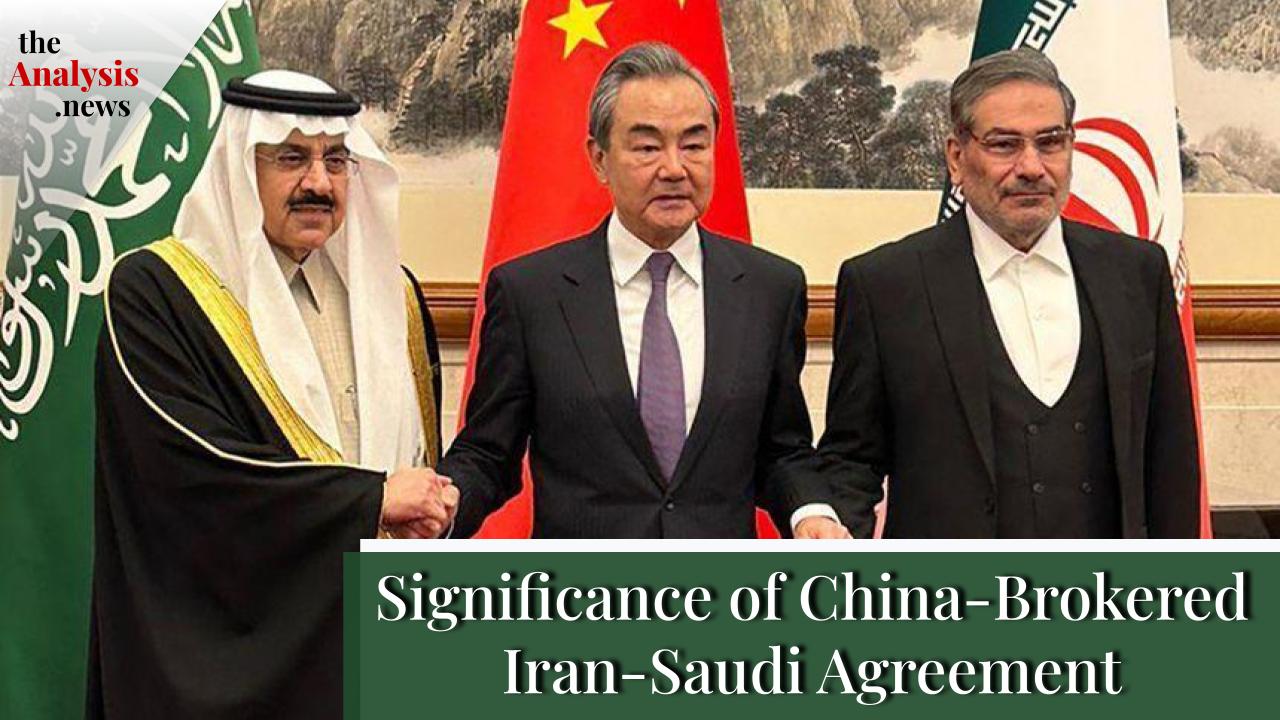
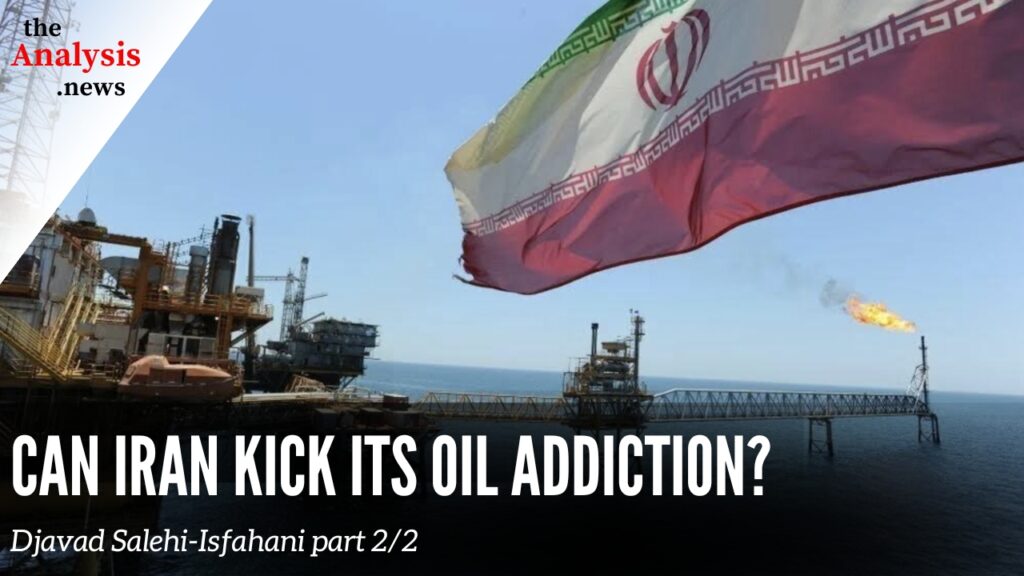
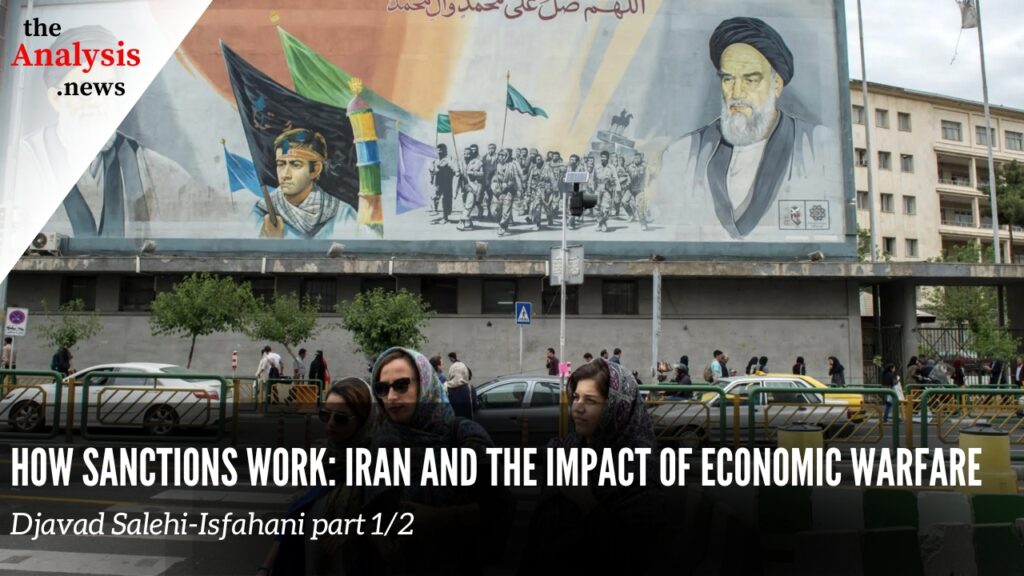
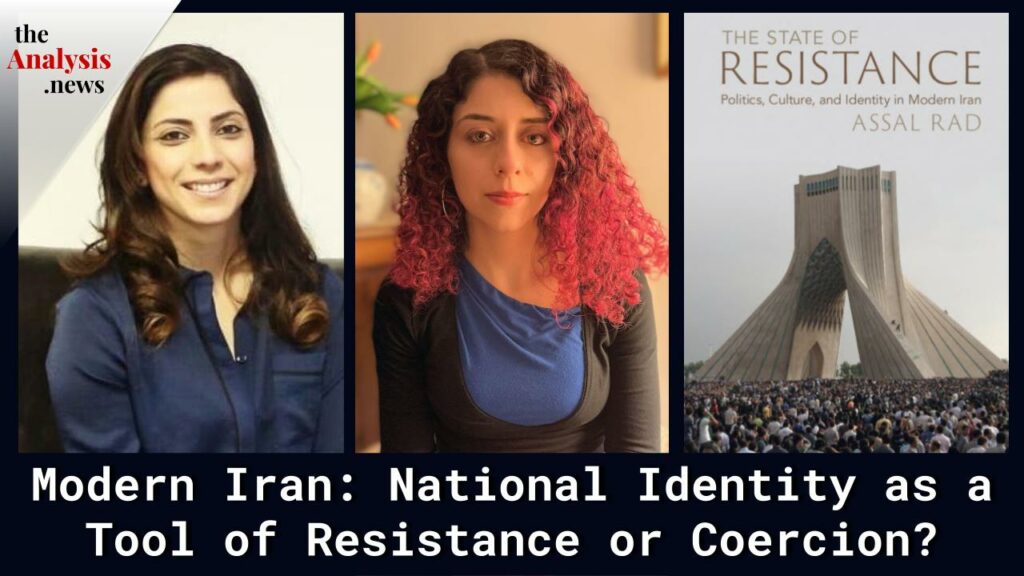
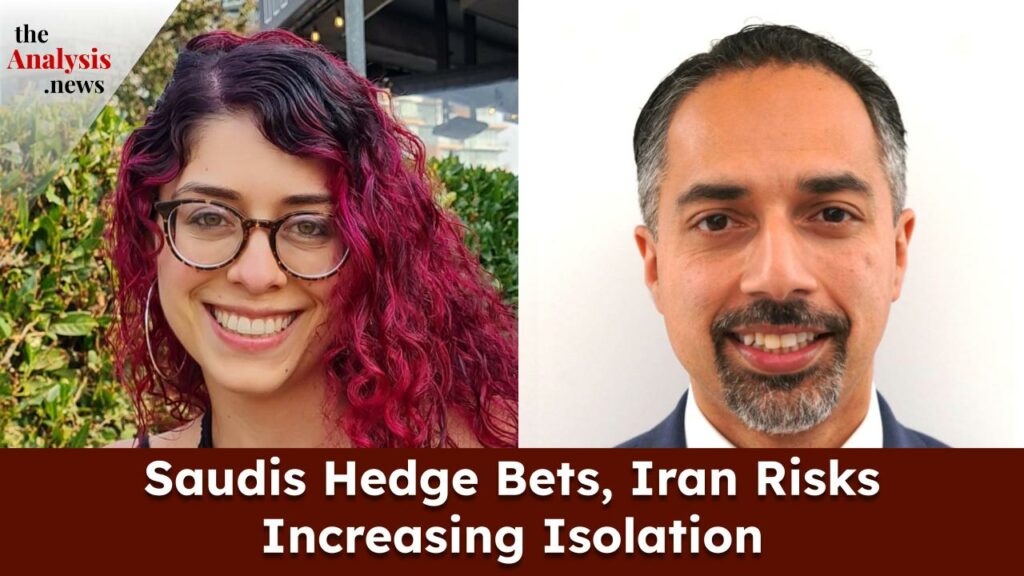

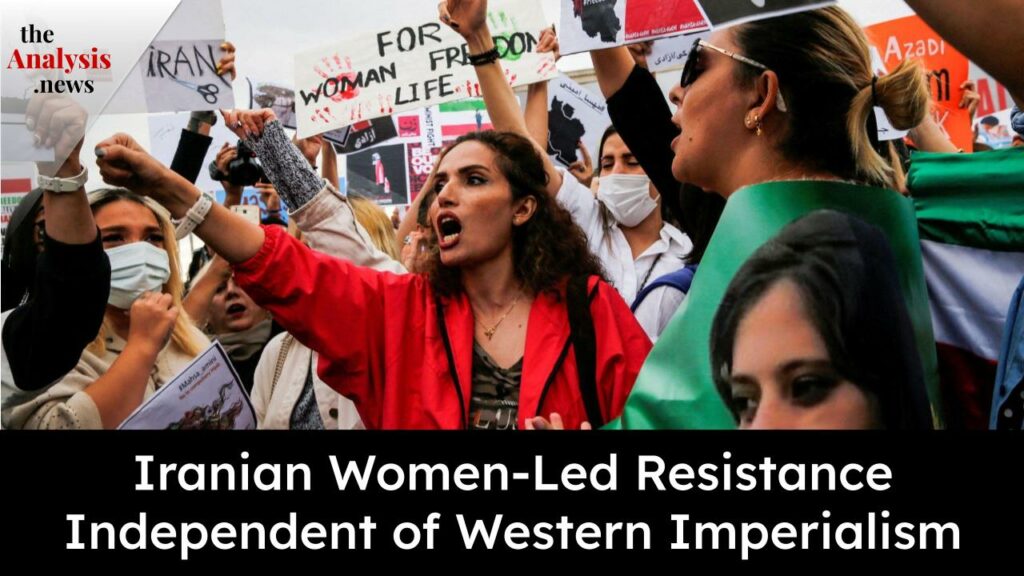
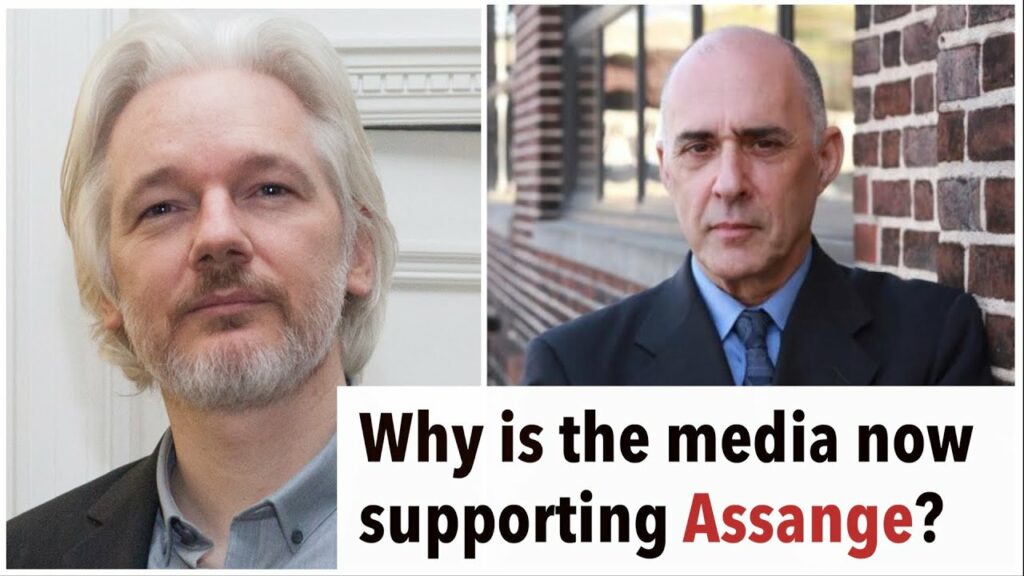

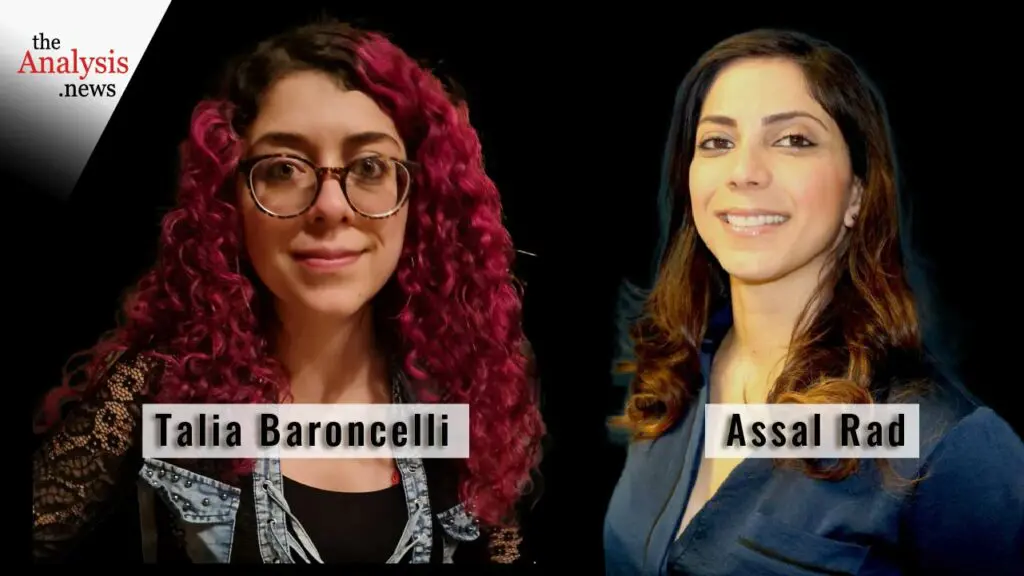
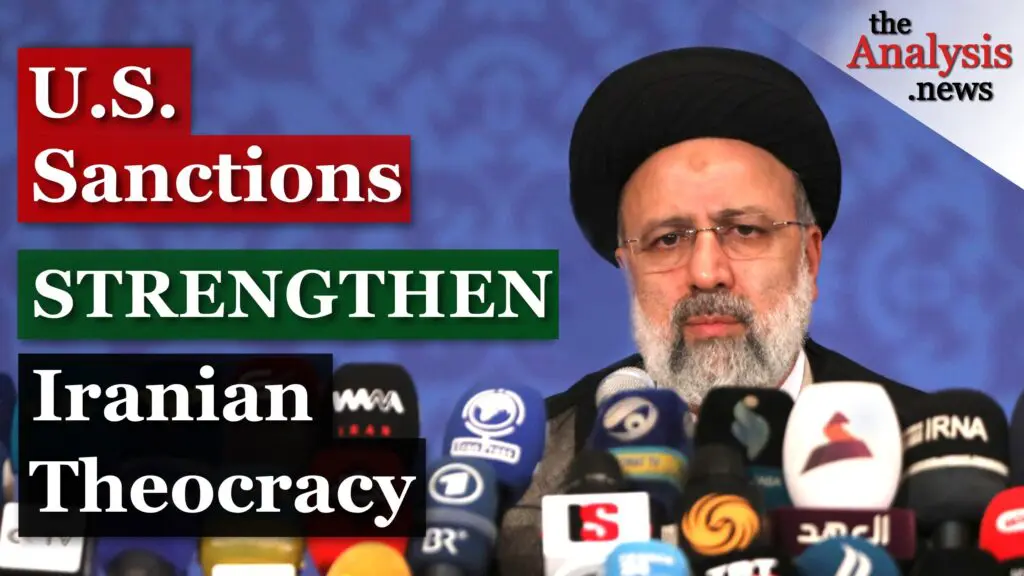
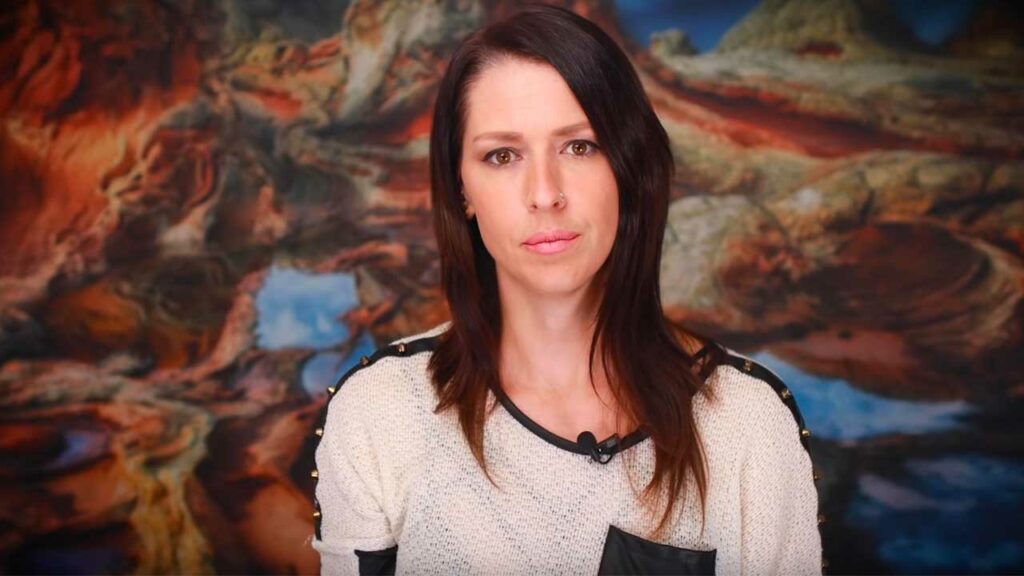
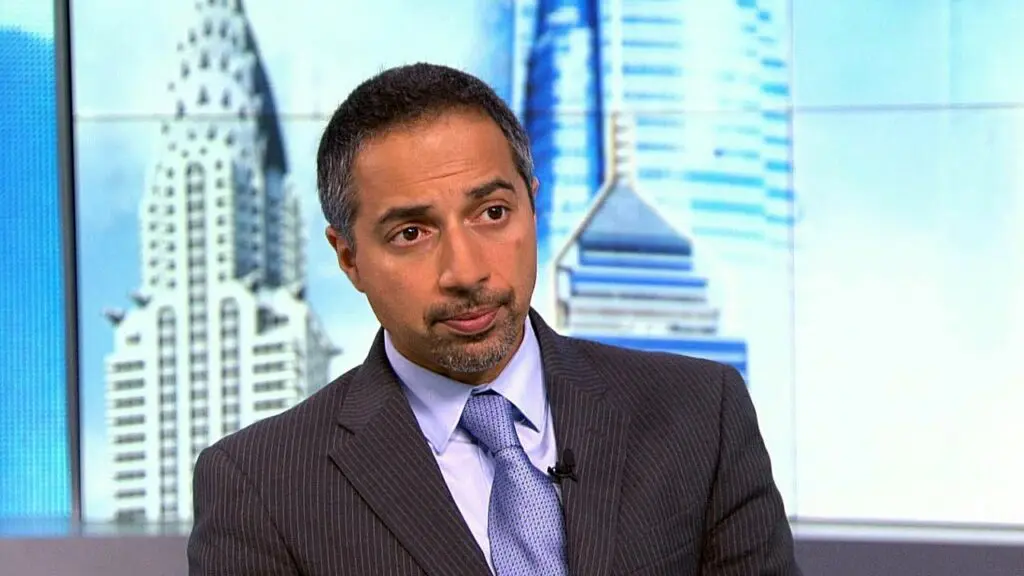


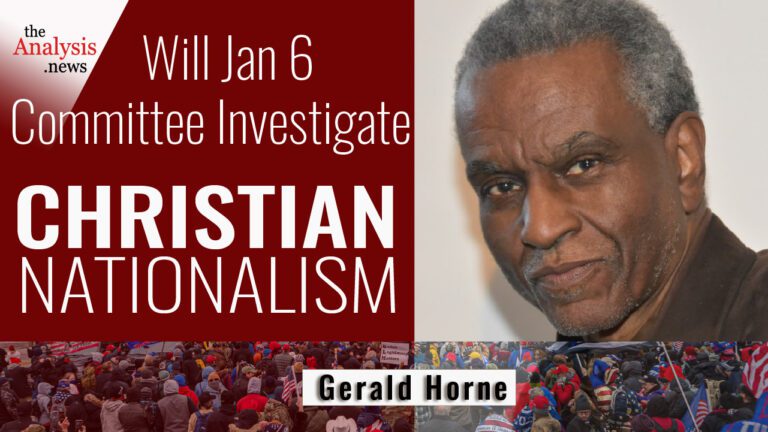

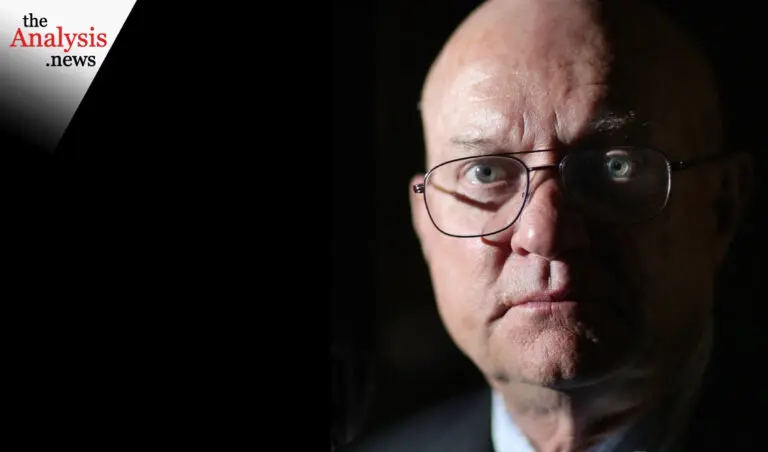

While it is my goal to live in a world without nuclear weapons, I find the double standard denying Iran nuclear weapons when Israel, the US and others have them unreasonable. It is hard to understand what happened to Libya and not understand the defensive utility of nuclear weapons. The next time someone talks about denying Iran nukes ask them why the US will not even agree to a “No first strike policy”. The US must reduce its arsenal down to the size of Russia’s then the two reduce down to the next largest and so forth.